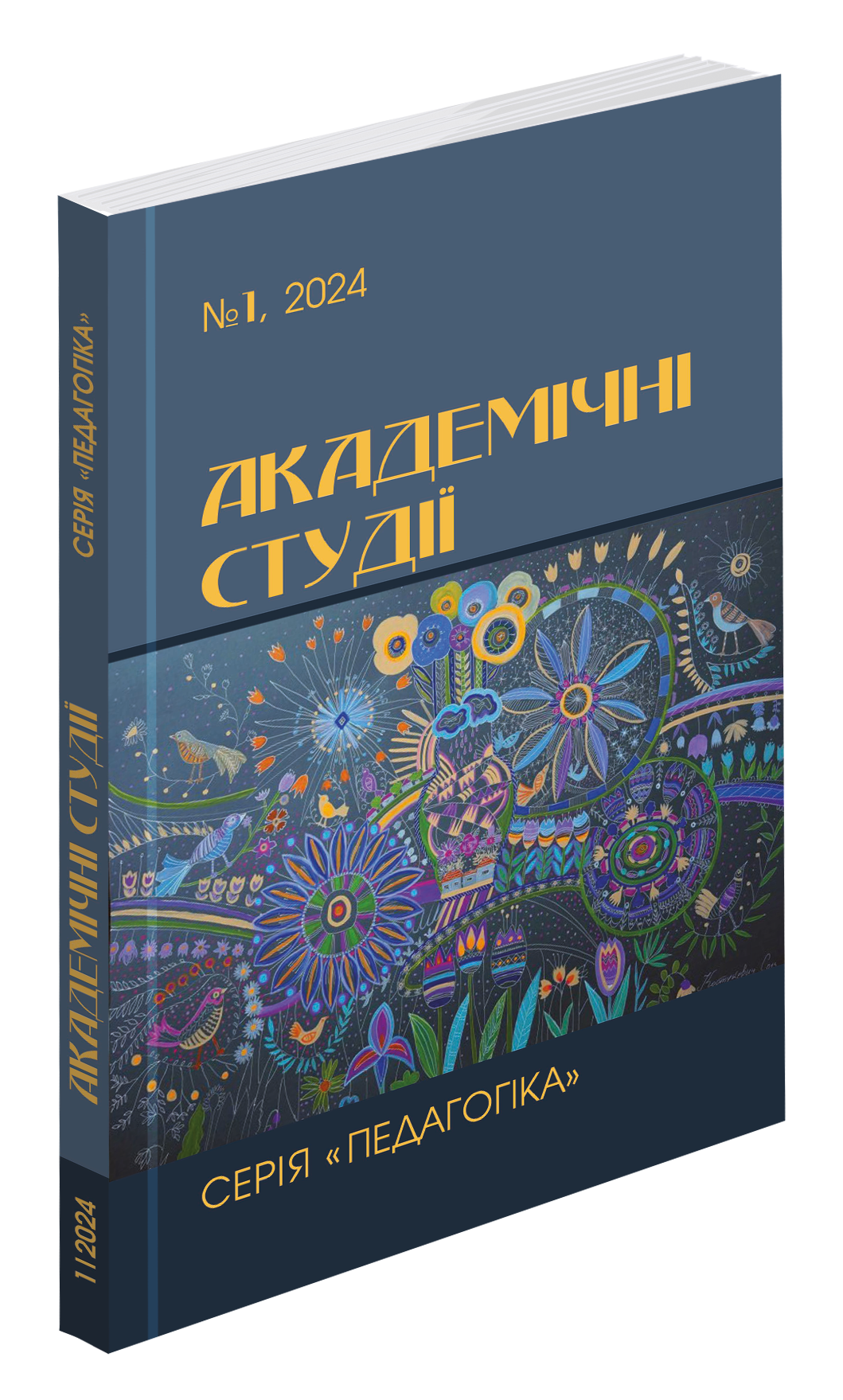Abstract
The article examines the organizational and methodological principles of training future primary school teachers to use the "flipped learning" technology. The essence and content of the "flipped learning" technology and its components have been established. Flipped learning is interpreted as an educational model in which the traditional presentation of a lecture is transformed into its discussion, in which debatable issues are revealed, projects are presented, practical work is performed, etc., and the video lecture with this approach is a key component in the technology of flipped learning. Approaches to the organization of flipped learning are characterized: by a typical flipped classroom (The Standard Inverted Classroom), a discussion-oriented flipped classroom (The Discussion-Oriented Flipped Classroom), a demonstration-focused flipped classroom (The Demonstration-Focused Flipped Classroom), a pseudo-flipped classroom (The FauxFlipped Classroom), group-based flipped classroom (The GroupBased Flipped Classroom), virtual flipped classroom (The Virtual Flipped Classroom), "flipped" teacher (Flipping The Teacher). It has been determined that the preparation of future primary school teachers for the use of "flipped learning" technology involves familiarizing students with the key aspects of the technology, ways of its implementation in the educational process of primary school, and the use of "inverted learning" technology during the teaching of professional disciplines. The advantages of the technology of "flipped learning" are the rationalization of the use of classroom time, the more conscious assimilation of the material by students, the strengthening of the autonomous position of the student in the educational process, the optimization of the development of critical thinking and creativity in students, their transformation into an integrative part of the educational process.
References
Гончарук О. М., Шуст Л. М., Дацюк В. В. Особливості застосування технології «перевернутого навчання» в початковій школі як прийом формування самостійної читацької діяльності здобувачів освіти. URL: http://academstudies.volyn.ua/index.php/pedagogy/article/view/4 (дата звернення 03.12.2023).
Гущина Н. STEM-проєкти у початковій школі. URL: https://youtu.be/jwDOIPJYhxw (05.12.2023).
Кадемія М.Ю. Інноваційні технології навчання: словник-глосарій. Львів : Вид-во «СПОЛОМ», 2011.196 с.
Ковтун О. А, Крикун В. С. Методологія застосування технології «перевернутого навчання» (flipped learning) у процесі підготовки майбутніх учителів іноземної мови. URL: https://openedu.kubg.edu.ua/journal/index.php/openedu/article/view/237/pdf (дата звернення: 08.12.2023)
Концепція «Нова українська школа». URL : http://bit.ly/2oRkOxQ (дата звернення 03.12.2023).
Пилипчук О. «Перевернене» навчання інформатики. URL : http://qoo.by/2Bl (дата звернення 05.12.2023).
Приходькіна Н. Використання технології «переверненого навчання» у професійній діяльності викладачів вищої школи. Науковий вісник Ужгородського національного університету. Серія «Педагогіка, соціальна робота». 2014. Вип. 30. С. 141‒144.
Рябуха Т.В., Гостіщева Н.О., Куликова Н.А., Харченко Т.І. «Перевернуте навчання» як інноваційна технологія викладання іноземних мов у вищій школі. Науково фахове видання «Педагогіка формування творчої особистості у вищій і загальноосвітній школах». 2020 р., № 72, Т. 2. С. 100–105.
Що таке STEM? URL : https://www.youtube.com/watch?v=ZS930V2mPS4 (дата звернення: 08.12.2023)
Bergmann J., Sams A. Flip Your Classroom: Reach Every Student in Every Class Every Day. Washington DC: International Society for Technology in Education, 2012.

